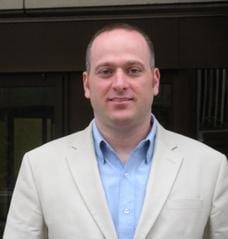After a 10-week Ontario Superior Court trial, the case of Kyle Freeman v Canadian Blood Services (CBS) has moved to closing arguments. The proceedings, which focus on a gay man who lied in order to give blood, have been seven years in the making.
Freeman’s lawyer, Patricia LeFebour, is asking Superior Court Justice Catherine Aitken to strike down CBS’s lifetime ban on blood donations by men who’ve had sex with another man even once since 1977.
“Now that it’s 2010, that’s a 33-year deferral rate. Any man, gay or straight, who has had one sexual experience with another man is excluded (from donating blood). This is blanket exclusion and it doesn’t take into account the reality of today’s HIV statistics of gay men,” says LeFebour.
LeFebour points out most gay men don’t engage in high-risk activities like unprotected anal sex. This means, she says, the majority of gay men are not at a high risk for HIV transmission.
“The questionnaire presumes all gay men have the same risk of HIV infection. When you look at the actual scientific statistics of where infections are taking place in gay men, 80-85 percent of gay men are negligible or of no risk of HIV infection,” says LeFebour.
All blood collected by CBS is tested for HIV. Testing has improved remarkably since it was introduced in 1985, and the window period for infection has been drastically reduced. Back then, a typical window period — when a newly HIV-positive person could slip through the screening process — was six months to a year, and tests still didn’t always pick up the HIV antibody. Nowadays, HIV can often be detected within two weeks.
But LeFebour wants to make it clear she is not asking for a deferral period for gay men to be removed permanently.
“No one is saying they should eliminate the deferral period. What we’re saying is 33 years is not scientifically warranted when you look at the advancements in testing. This is especially true when you look at the new pattern of heavy HIV infections coming from not just the gay community, but other groups in society like women, younger people, people from countries where HIV is endemic, and sadly amongst First Nations’ people. And yet when you look at the questions of potential blood donors, a man who has had sex with a man even once since 1977 is deferred permanently. A woman who has had sex with a bisexual or gay man is deferred for 12 months and can come back to donate blood again. The current rule unfairly singles out the entire gay population,” says LeFebour.
Final submissions will be presented in court this Friday. The court will hear from the Attorney General of Canada tomorrow (Thursday) at 9:30am. A verdict is not expected for several weeks.

 Why you can trust Xtra
Why you can trust Xtra


